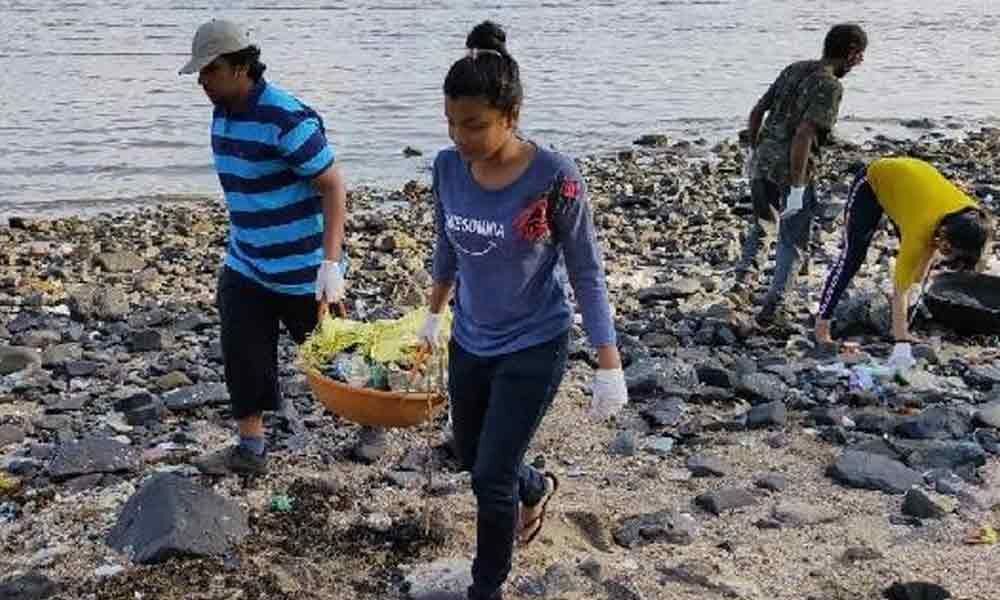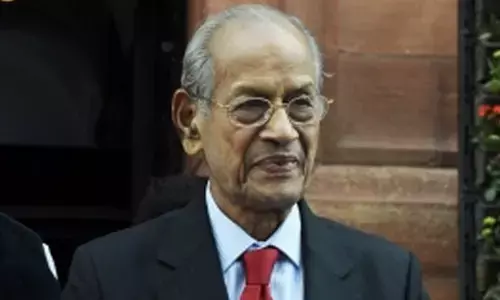These community changemakers clean up public spaces

With an environmental crisis looming over the planet, is the way out community-led?
With an environmental crisis looming over the planet, is the way out community-led? Two cleaning initiatives in India, targeting heavily-visited and littered-mountains and beaches, show how civic conviction can turn into an on-ground impact that ropes in local stakeholders.
'Bringing back our old Dadar beach' was the simple phrase motivating Chinu Kwatra, 28, when he first picked up garbage from the squalid Dadar beach two years ago - the first step of removal of more than 2,000 tonnes of garbage - and set the ball rolling for a community-led beach clean-up.
Recalling the episode, Maharashtra's Thane-based Kwatra said how momentous changes begin small. For his collective Beach Warriors, it began with a day-long clean-up drive after he saw 'visarjit' (immersed) Ganesha idols everywhere on the beach.
A Facebook post about it travelled to an old professor, who then suggested that they extend it beyond a day.
However, even in the campaign's second week, it was the same three people doing back-breaking work to free Dadar beach of its detritus.
"I felt I will lose the battle if more citizens didn't join us," said Kwatra, who quit his job to take up community work. To Kwatra's surprise, it wasn't long before local support started pouring in the form of students and "within an hour, from three the number rose to 25", and then, attracted even more.
What involved just two of his friends at first, propelled many communities into action. The team now gets volunteers from organisations, corporate houses, schools and colleges. The social changemaker leads a core team of 40 Beach Warriors.
There are an average of 20 volunteers cleaning each of the seven beaches they work on - Cuffe Parade, Worli, Bandra, Juhu, Erangal, Madh, and Dadar, he said.
Inviting other people to step forward in their respective communities, Kwatra said they weren't doing "anything great" but only what "every citizen must do", regardless of administrative intervention.
Kwatra said he was inspired by Afroz Shah, an environmentalist and lawyer, who led another set of volunteers cleaning Mumbai's Versova beach - often termed as the world's largest beach clean-up drive.
It has removed thousands of tonnes of waste from Versova Beach. Kwatra has now trained his eyes on cleaning up the highly-polluted Yamuna river in Delhi.
In the northern part of India, another clean-up drive targets mountains.
Trekking enthusiast Pradeep Sangwan, who leads a similar volunteer-driven cleaning initiative in the Himalayan cities, advocates for sustainable tourism along with encouraging communities to step forward for damage control.
His collective Healing Himalayas Foundation, founded in 2016, collects garbage from trekking routes and areas around waterfalls.
Having worked around Manali, Kheerganga, Shimla, and more recently, Shrikhand, the sustained campaign has been vocal about reducing the carbon footprint and plastic waste tourists leave around, to the extent that "if a lost trekker follows the litter trail during a trek, she could find the group".
Speaking about their cleanup drive around Manali's Jogini Waterfalls, Sangwan said that it was relegated from a space for meditative activities to "a party place". "Simply, the campaign is about saving waterfalls from becoming a big dump-yard.
We organise regular cleaning drives and educating local communities and schools." Like Kwatra, Shah and several other community-oriented change-makers, Sangwan too stresses the importance of a collective change that takes birth within people's hearts and shows in their actions.
"It is really about exploring spaces with empathy, and sense of preservation and sustainability," he strongly believes.














